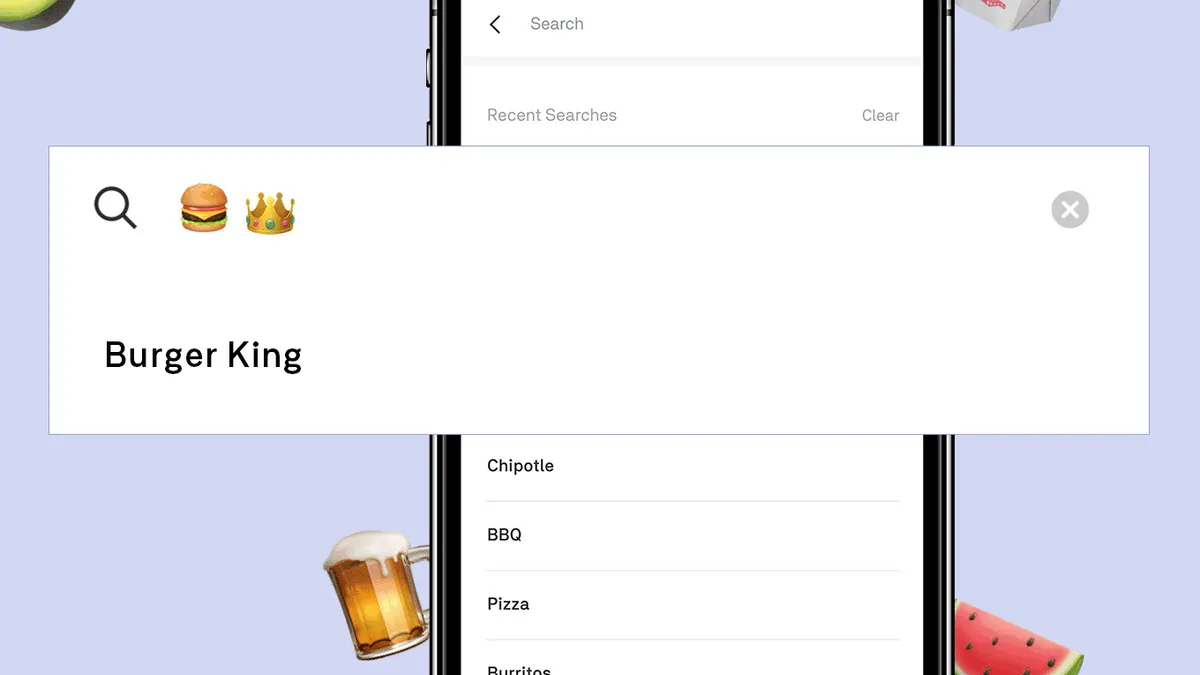Brief:
- Postmates added emoji search features to help customers use quick visual shorthands while looking up products for delivery, per news shared with Mobile Marketer. For example, a user can combine the "taco" and "bell" emoji to find Taco Bell, or the "hamburger" and "crown" emoji to look up Burger King.
- Postmates created some combinations of emoji that can be discovered as easter eggs, and urged customers to post them to their Twitter accounts using the #PostMoji tag. The company said its emoji search works with the more than 1,500 emoji that are now available on mobile devices.
- The new search function debuted around World Emoji Day (July 17) and as marketers are trying to get more out of the popular visual shorthand. Almost two-thirds (64%) of U.S. emoji users are willing to make a purchase with an emoji, and the same percentage is more likely to open an email from a brand with their favorite emoji in the subject line, per a survey that Adobe shared with Mobile Marketer.
Insight:
Postmates' addition of emoji search likely will find an audience among mobile users who prefer to communicate through messaging apps and want a visual representation of their thoughts. The emoji search feature coincides with growing acceptance of emoji in making purchases, although Adobe's study suggests specific product categories have more room for growth. The most popular categories for emoji purchase are meals (19% of emoji users), movie tickets (15%), clothing (13%), accessories (8%) and sporting events (7%).
Postmates leaning into the trend could help it stand out in an increasingly crowded field for third-party delivery platforms. The company competes closely with Grubhub, Doordash, UberEats and others, all of which are ramping up their marketing efforts targeted at mobile- and convenience-minded consumers like millennials. CEO Bastian Lehmann recently denied reports that Postmates was looking to be acquired, while reinforcing plans to take the company public sometime this year — a move that would require the platform to continue to innovate to keep up, not just with rivals, but also the pressures of the public markets.
Brands need to consider how emoji are changing the way consumers communicate and respond to sponsored messages, Adobe's study said. Sixty percent of emoji users said they like brands and companies that use emoji to match their personalities, while 44% said they're more likely to buy products that are advertised as emoji. Emails that include emoji can be more effective than text alone. Fifty-eight percent of emoji user said they’re more likely to open an email with an emoji in the subject line, per Adobe.
In the past few years, iOS and Android have added emoji prediction and autocomplete features to their on-screen keyboards to help mobile users inject the icons into their messages, making them more lively than basic blocks of text. Almost two-thirds (62%) of emoji users said they use emoji to make conversations more fun, the top reason to include the icons in messages, Adobe's study found. The three most popular emoji express laughter, love and kisses, per the survey.













